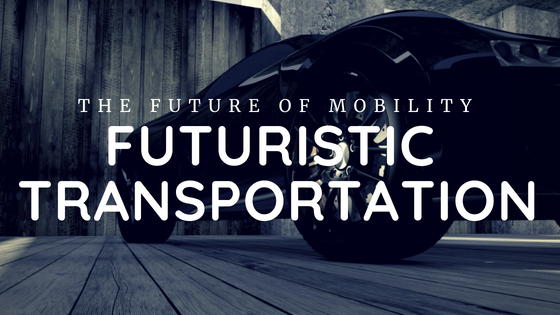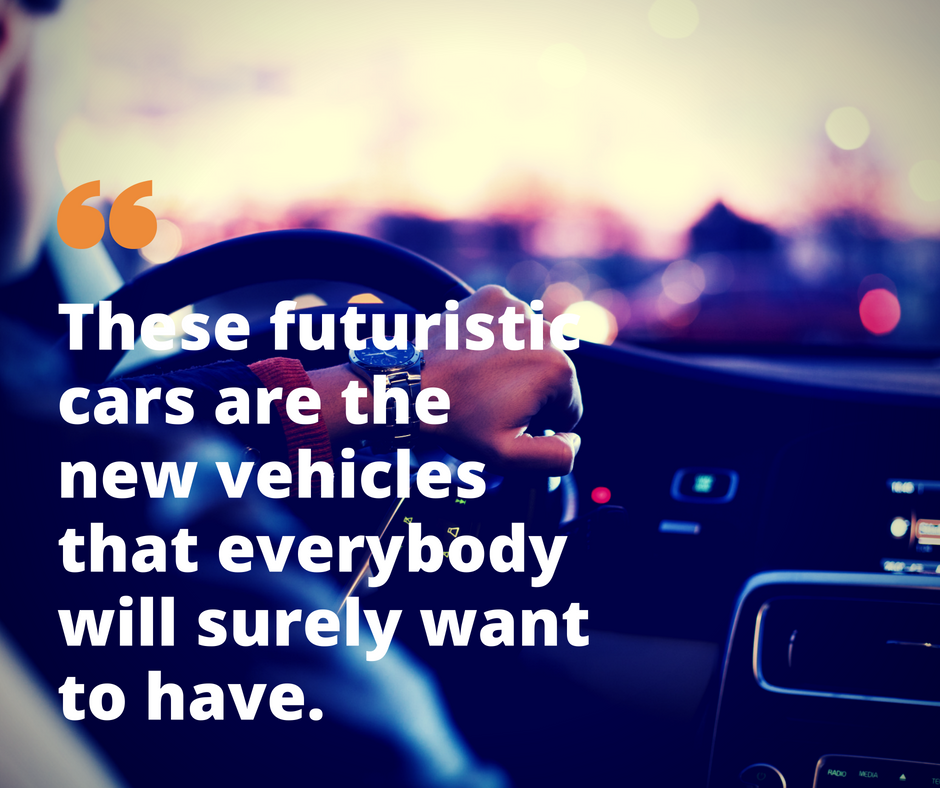The Future of Mobility: Futuristic Transportation

Futuristic vehicles will soon be more fuel efficient, with zero or minimal emissions that are harmful, and will use innovative gadgets and programming to help drivers in an assortment of ways. Vehicles will be able to communicate with one another and be smart enough to follow street signs, and signals on the road. Automobiles and trucks will automatically be able to avoid obstacles and other vehicles. They will be able to see around curves and caution the passenger of possible impacts with other people, animals, and objects. The vehicle will also be able to explore and safely pass through terrible climates. It can also sense when you are drunk, drowsy, or sleepy and assist you accordingly. In twenty years, cars will be fundamentally different from the cars of today, a vehicle will have as the ability to take complete control of driving itself.

Scientists and engineers are always looking for new ways to make cars safer, smarter, more efficient, and use less energy. New cars may help us to keep track of our health by reminding us to take our medication. These cars can also automatically send and receive text messages, play music and movies, activate GPS, and even track a friends’ car’s location. The cars of the future can also talk to you, to other cars, to your computer, to your mobile phone, and to other devices. These cars will also help drivers save energy, watch out for other drivers and avoid pedestrians. When there is something or someone suddenly crossing your path, the car will be able to automatically stop at a safe distance of a few meters away. This will be the futuristic transportation technology that molds the imagination of engineers, which can turn your dream car into reality. These futuristic cars are the new vehicles that everybody will surely want to have. They are much safer, and they are also smarter and more energy-efficient.
There is also no need to use gasoline in futuristic cars. These vehicles will be electrically-operated and can be powered by solar panels. A solar panel can be installed on any device as long as it is powered by electricity. It is way more efficient and less costly than gasoline-powered cars.

Scientists are still thinking of new and innovative ideas on how to improve existing cars and, thinking out of the box, possibly invent new models entirely. For example: a gasoline powered car that is fueled by gasoline is harmful and causes pollution. Why use gasoline if you can manufacture a car that runs on electricity? This was already invented many years ago, and also not allowed in some countries.
By being innovative and resourceful, we can have such vehicles as our common mode of futuristic transportation. These are vehicles that drive themselves by having cameras and sensors as well as smart programming to enable them to “see” their environment. These vehicles will require capable PC “brains” to process information at split-second speeds, and adjust accordingly depending on road conditions and needs.
The enormous number of players in artificial intelligence technology will inevitably offer their most recent innovations in this field. Two of the greatest names, Intel and NVidia, will have new processors to flaunt to make such innovations a reality. Competition is ongoing between the two companies, with both promising to manufacture PCs sufficiently and effectively to have “full self-rule,” with no guiding wheel or pedals needed. Expect a ton of innovations on the eventual capability of cars to employ self-driving technology.
Cars will be similar to smartphones on wheels. Futuristic vehicles may help us feel at ease. For example, buses are commonly used as public transportation. When we apply some of these specifications of futuristic cars to public transport vehicles, commuters will feel benefit from such added safety precautions. It may even be possible to make public transportation with flight capabilities, which will help in easing traffic and make journeys faster and more comfortable. And instead of manual driving, you can go to self-driving mode, to reduce the physical effort of manual driving and to avoid stress.

Electric cars are a wonderful phenomenon. They have various innovative points of interest, such as, for example, self-driving capacity. And with regards to the trend to move away from fossil fuels, this has reinforced by environmental commitments to reduce molecule- and ozone-depleting emissions from traditional cars. In the years ahead, progressively effective and efficient electric motors will eventually supplant the regular internal combustion engine.
In futuristic vehicles, drivers can program a cruising pace and let the car take control. What is more, some cars can offer help in case of emergency, such as in accidents, during engine trouble, and unforeseen problems during heavy traffic jams. The next stage is a 100% self-governance. Scientists and engineers are working to supplant human eyes with multiple cameras, sensors, and lasers that will replicate the earth in 3D and enable the vehicle to successfully navigate without human help. Promoted by Google and its acclaimed Google auto, manufacturers are now in the period of making road tests on this technology.
In addition, there will be major changes in the nature of processing plants together with significant upgrades in technology. The equipment, parts, programming, and the engineering will need to be updated following these changes. The automotive body is also gradually changing to include advances – for example, lightweight composite and 3D printing materials. And to guarantee the scope of the vehicle, various gadgets should be incorporated, including PCs, cameras, etc.
In conclusion, the car of the future will be built with a new face, will be much more efficient than cars that run on fossil fuels, will be autonomous, and interconnected. It will bring multiple benefits that current vehicles cannot provide, such as less pollution, enhanced safety, and more. In conclusion, transportation with futuristic vehicles will be less of a hassle with their ability for more comfortable transport, safety, security, and connectivity services.






